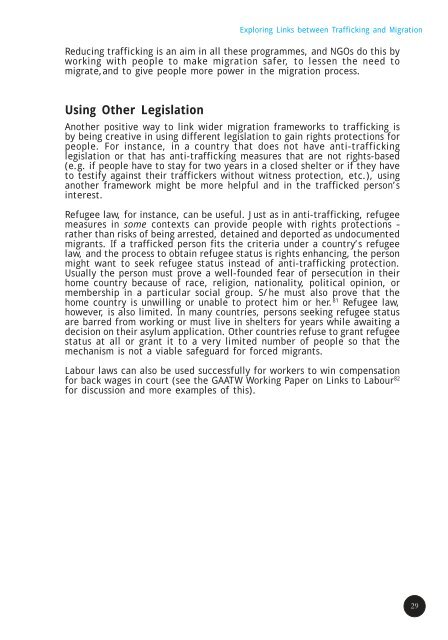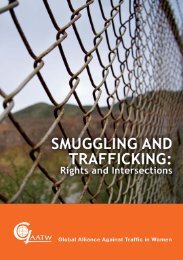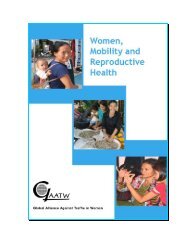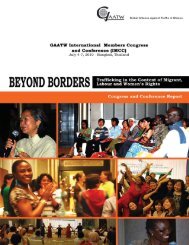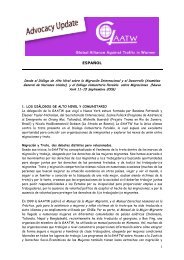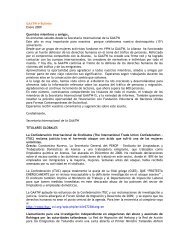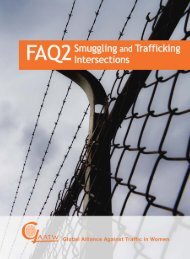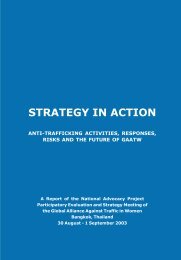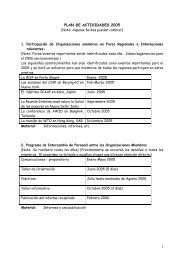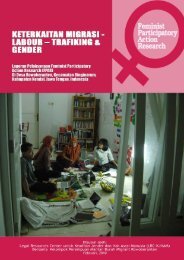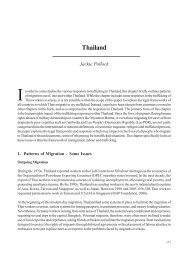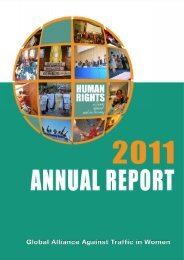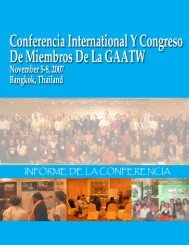Exploring Links between Trafficking and Migration - Global Alliance ...
Exploring Links between Trafficking and Migration - Global Alliance ...
Exploring Links between Trafficking and Migration - Global Alliance ...
- No tags were found...
Create successful ePaper yourself
Turn your PDF publications into a flip-book with our unique Google optimized e-Paper software.
<strong>Exploring</strong> <strong>Links</strong> <strong>between</strong> <strong>Trafficking</strong> <strong>and</strong> <strong>Migration</strong>Reducing trafficking is an aim in all these programmes, <strong>and</strong> NGOs do this byworking with people to make migration safer, to lessen the need tomigrate,<strong>and</strong> to give people more power in the migration process.Using Other LegislationAnother positive way to link wider migration frameworks to trafficking isby being creative in using different legislation to gain rights protections forpeople. For instance, in a country that does not have anti-traffickinglegislation or that has anti-trafficking measures that are not rights-based(e.g. if people have to stay for two years in a closed shelter or if they haveto testify against their traffickers without witness protection, etc.), usinganother framework might be more helpful <strong>and</strong> in the trafficked person’sinterest.Refugee law, for instance, can be useful. Just as in anti-trafficking, refugeemeasures in some contexts can provide people with rights protections –rather than risks of being arrested, detained <strong>and</strong> deported as undocumentedmigrants. If a trafficked person fits the criteria under a country’s refugeelaw, <strong>and</strong> the process to obtain refugee status is rights enhancing, the personmight want to seek refugee status instead of anti-trafficking protection.Usually the person must prove a well-founded fear of persecution in theirhome country because of race, religion, nationality, political opinion, ormembership in a particular social group. S/he must also prove that thehome country is unwilling or unable to protect him or her. 81 Refugee law,however, is also limited. In many countries, persons seeking refugee statusare barred from working or must live in shelters for years while awaiting adecision on their asylum application. Other countries refuse to grant refugeestatus at all or grant it to a very limited number of people so that themechanism is not a viable safeguard for forced migrants.Labour laws can also be used successfully for workers to win compensationfor back wages in court (see the GAATW Working Paper on <strong>Links</strong> to Labour 82for discussion <strong>and</strong> more examples of this).29


